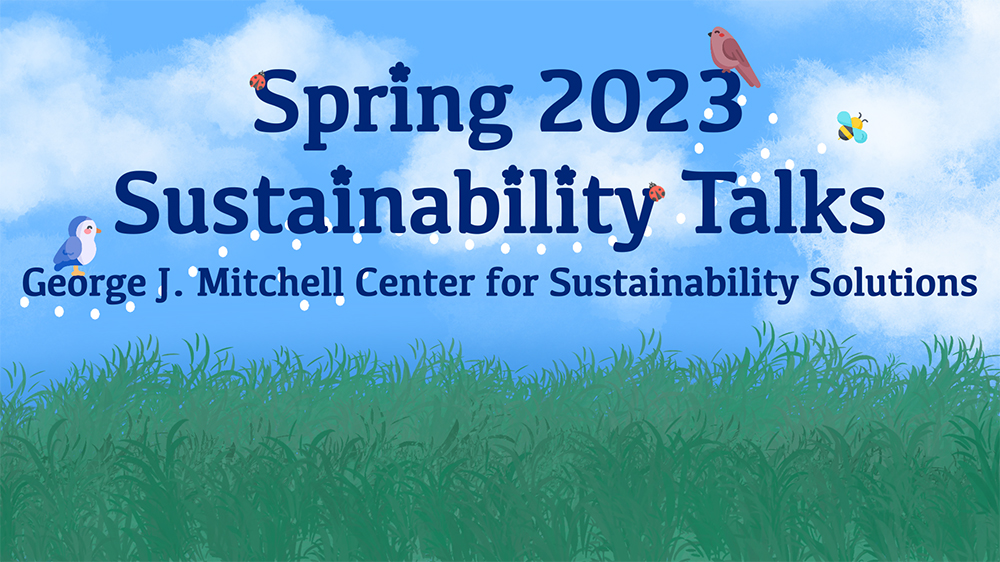On Monday, Feb. 13, the University of Maine’s Mitchell Center for Sustainability Solutions welcomed accredited and acclaimed conservationist Tim Glidden for reflection on his lengthy career in Maine’s environment and discussion on the future of conservation.
Glidden, who just retired from his position as Maine Coast Heritage Trust President, has worked in Maine conservation for around 50 years. As a self-described “neutral generalist,” his involved and apolitical role in conservation depends on trust and a comprehensive view backed by research.
Glidden joined the nonpartisan legislature staff in 1984 in order to help handle environmental issues, spending 10 years there before spending seven years at the Natural Resources Council of Maine. The experiences he received in these positions demonstrate the way Maine approaches environmental and conservation issues.
His presentation featured several beautiful photographs of Maine’s coast, sunsets and natural formations.
“Because we’re in the darker and colder part of the year, I thought that it would be good to get a little taste of how Maine can inspire us with its beauty in warmer times,” Glidden said.
Raised a “free-range kid,” Glidden sparked a love and appreciation for nature. He also reflected on his privilege to be able to attend two elite schools and learn under experienced professors, three of whom he said won Nobel Peace Prizes.
Glidden obtained his undergraduate environmental science degree at Waterville, Maine’s Colby College and got his master’s at the Yale University School of Forestry.
Despite his undergraduate studies and career as a whole being spent in Maine, Glidden was quick to admit that he is not from the state. However, he has ancestral connections to the Pine Tree State.
“Maine citizens care a lot about their forests,” Glidden stated, reflecting on his history working in conservation. This dedication leads to a lot of pushback when it comes to unsatisfactory environmental policies, which Glidden dealt with firsthand.
“Today’s conservationist understands that success requires the best available natural resource science,” Glidden said while closing the talk. “It also requires deep awareness of human and community needs.”
For more information about the Mitchell Center, visit https://umaine.edu/mitchellcenter/.








